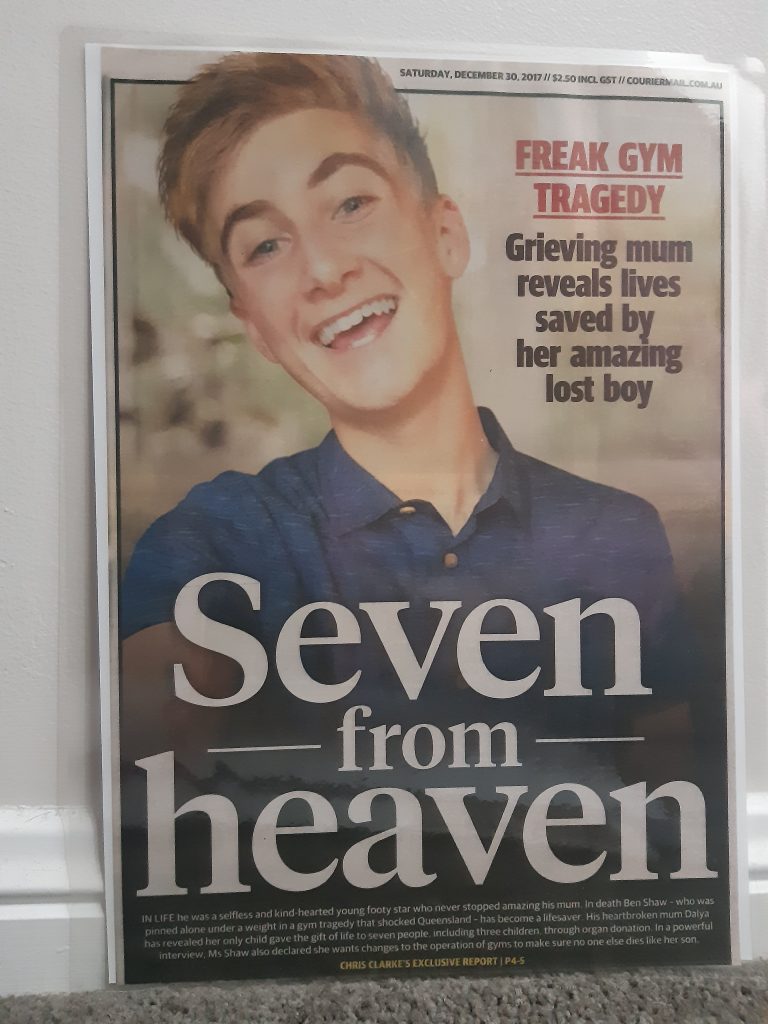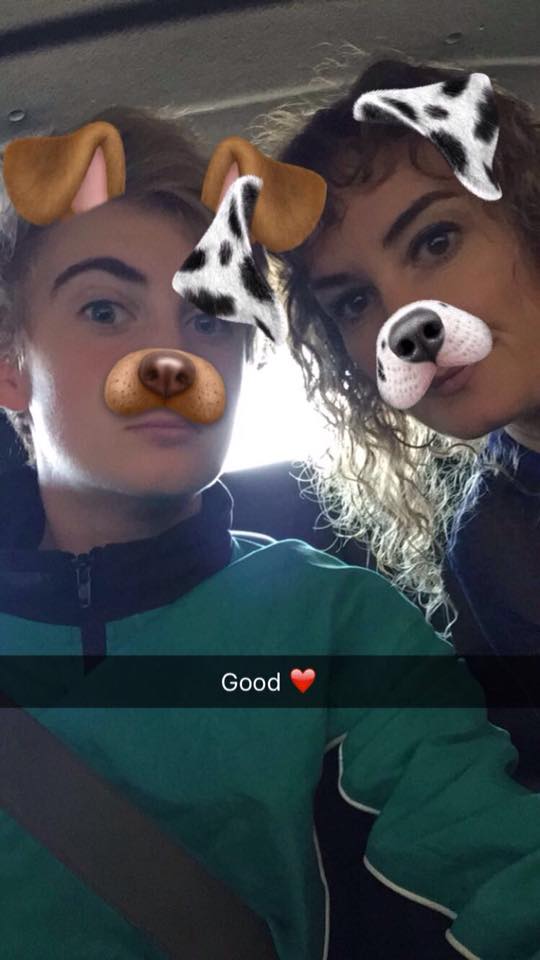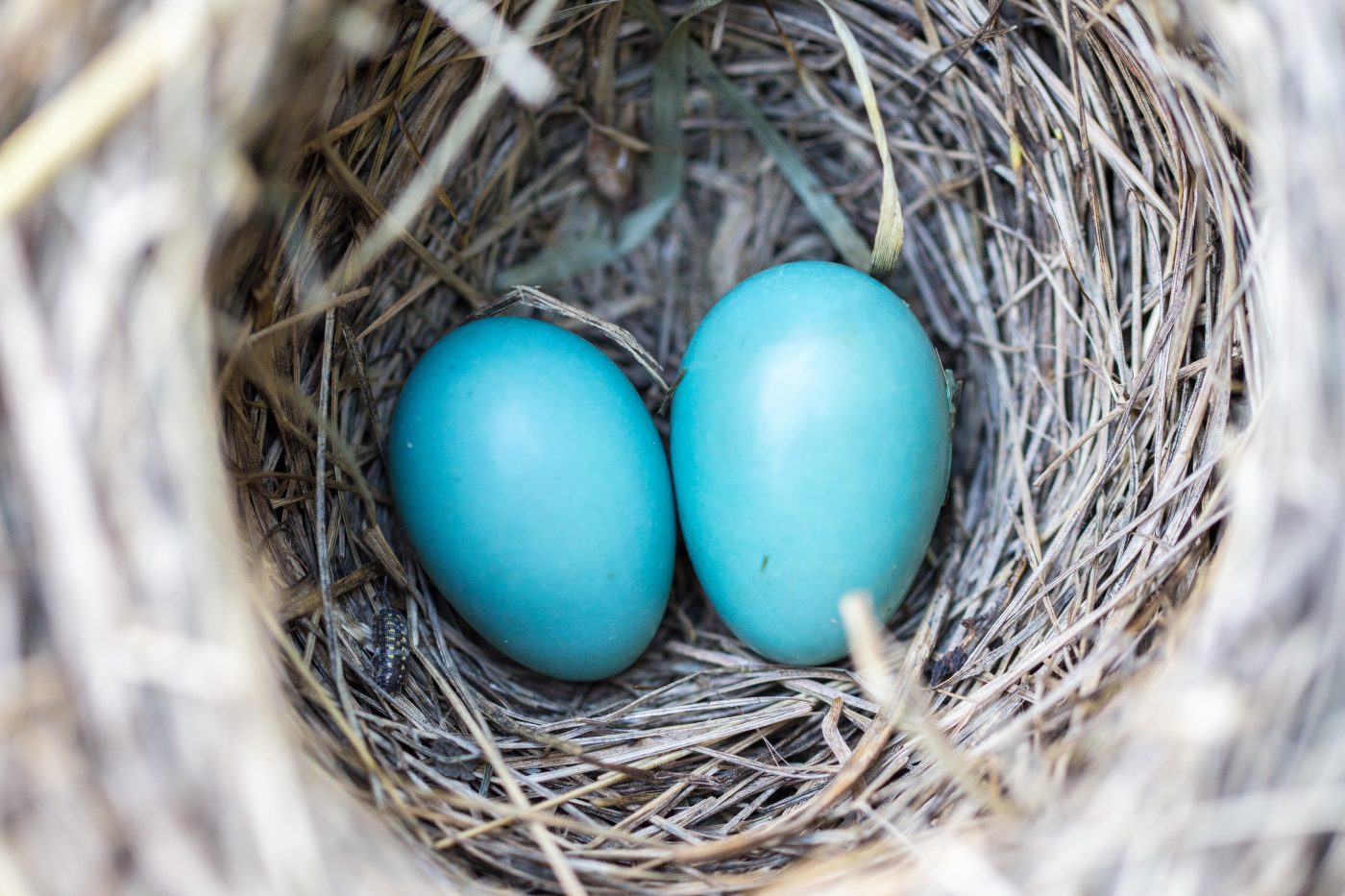Today marks the first day of DonateLife week. For many of you who follow my writings, you know that I lost my only child Ben at just 15yo, in 2017, under tragic circumstances. What you may also know is that the decision was made to donate Ben’s organs. As a result, he was able to give or change the lives of at least six people. And you can’t put a price on that.
I am often asked how this decision was made in what must have been incomprehensible circumstances. To be honest, I never had this conversation with Ben, like so many other parents – it just never came up.
Fortunately, I knew Ben better than anyone and knew what he would have wanted. My life had always revolved around him. During those few days in the hospital, I knew this would not change but my focus shifted to what would Ben want moving forward. And so, his legacy continues.

Anyone who knew Ben would likely have experienced his extreme generosity. He gave freely of his time, his money, and his belongings.
Ben was always available for a mate who needed a hand or simply an ear to listen. He was known to regularly treat school friends to a free lunch or ice-cream, and he was responsible for giving more than one or two loans between allowances or paychecks – many of these never required to be re-paid.
Not long after he died, a boy at football shared how Ben had given him his football shorts. Another friend had his t-shirt and another his hoodie.
Ben’s compassion was extraordinary. He took time for others and for those he cared about, you never doubted that he always had your back.
And that’s the thing about Ben, he was loyal till the end.
I have learned so much since then. I have discovered some of the richest and most beautiful relationships, with people I never would have met had the circumstances been different. Other relationships have run their course or been lost along the way.
Grief changes you, or perhaps it just makes you more of the person you really are. For some, it brings out the best and others the worst…

Over the years, I have had numerous conversations with people around the topic of organ donation, across a range of audiences, from teenagers to the elderly.
During these discussions, the topic of whether donor families and recipients should be allowed to meet always comes up.
A report of Community Consultative Form – contact between donor families and transplant recipients, explored views and thoughts from both parties. In 2018, donor families and recipients in Australia were able to register their details on a website, and ‘if certain criteria and consent to conditions is met by both sides, then a mutual introduction can be made.’
At a glance, this might look like a good idea. You might say what could possibly go wrong?
I’m glad you asked. I will talk more about this next week but let me share this for now.
A lot of information was gleaned from the community consultation. Perceived benefits, as well as potential risks, were acknowledged and highlighted, which brings me to my first question.
Are some of these potential risks worth the contact?
I can guarantee you it will never bring your person back.
Being a donor or recipient family comes with a delicate and unique set of challenges. Your feelings and thoughts change over time and you can’t always predict these changes.
What are some of the risks in knowing?
💙 Knowing the donor/recipient can cause significantly increased pain and in some cases further trauma that may be perpetuated and compounded.
💙 Expectations need to be carefully managed, yet how do you do this when emotions are extreme?
💙 How do you accept differences in belief structures, cultures, behaviors, or lifestyles?
💙 There is never a ‘right’ time yet contact too early can be overwhelming and contact much later can come with increased judgement.
💙 Not everyone wants contact, and this increases the likelihood of causing deep distress and guilt.
💙 What if the family unit breaks down and contact has been made or one person is pushing for it and not the other?
💙 What if contact is made and then you change your mind?
💙 What if one party becomes ‘over the top’? There have been cases where legal action has been taken due to occurrences of stalking.

As the mother of an organ donor, and thinking about my personal experience, I was shocked to read that some people felt knowing the donor/recipient would allow them to ‘feel good’ about the donation and ‘provide motivation and feeling of worth from the recipient’.
My beautiful boy Ben died and gave life to others – is this not enough to make them feel good?
Ben’s death meant that others received a second chance at life – is that not enough to provide motivation and feelings of worth?
So, if you ask me, are the potential risks worth the contact? I’ll tell you ABSOLUTELY NOT!
Am I an advocate of Organ Donation and do I encourage/educate people about it? ABSOLUTELY YES!!
Join me next week where we will continue this conversation and look at some myths, pros, and cons. Also how gratitude plays a powerful role in the whole process of organ donation.
Until then I leave you with this question: Should donor families meet recipient families?
REGISTER TO BE AN ORGAN DONOR!
Much love
Dalya xx 💙

I think of you and Ben often Dalya.
🙏💔🙏